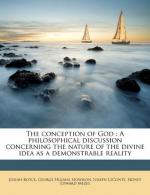|
This section contains 4,346 words (approx. 15 pages at 300 words per page) |

|
Central to natural law theories of morality is the idea that there are guiding principles for human conduct higher than those of personal self-interest, particular social custom, or positive governmental statute. Such a higher law is characteristically thought to be objectively true, accessible to reason, and universally obligatory. This law is natural in the sense that the goods it defines are logically related to the rational nature of human beings. Though many advocates are theists, typically from the Catholic tradition, who ground the content of natural law in divine will, the tradition includes non-theistic theorists as well.
The norms of natural law must be distinguished from laws of nature, which are purely descriptive propositions identifying causal relations between material entities, events, or phenomena. Yet because of its appeal to nature, the conceptualization and understanding of which has been deeply affected by modern natural science, and subject...
|
This section contains 4,346 words (approx. 15 pages at 300 words per page) |

|


